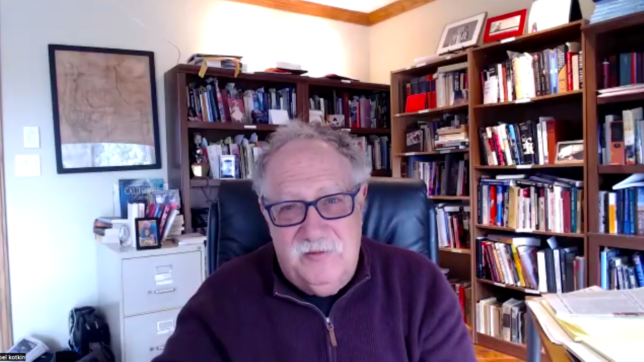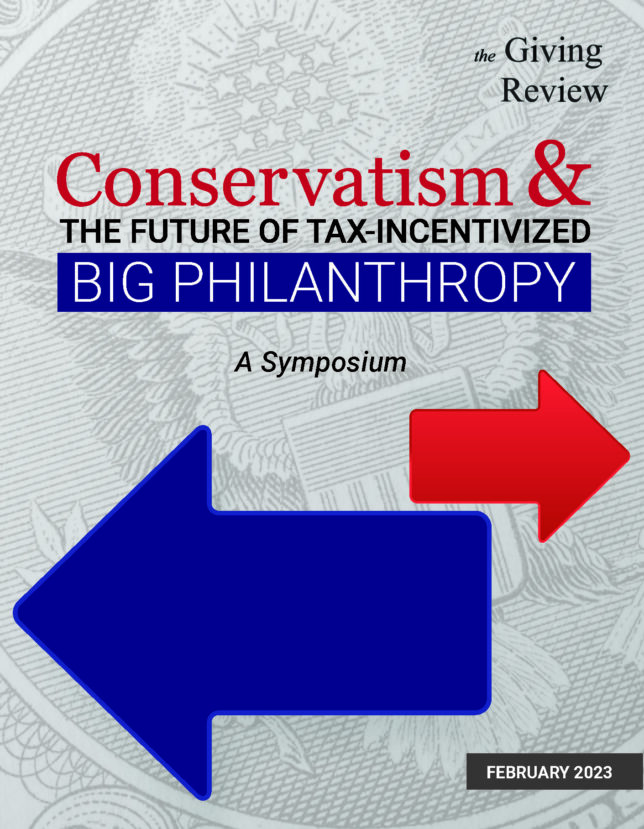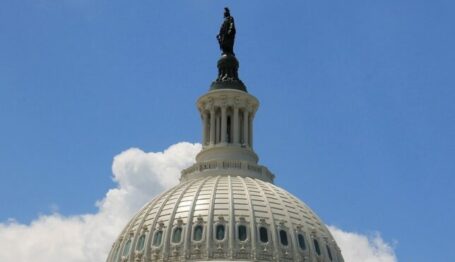Philanthropy
A Conversation with Symposium Contributor Joel Kotkin
The Author and Commentator Talks to Michael E. Hartmann About His Article in the “Conservatism and the Future of Tax-Incentivized Big Philanthropy” Symposium.
 Joel Kotkin
Joel Kotkin

A prolific author and incisive commentator, Joel Kotkin is the Roger Hobbs Presidential Fellow in Urban Futures at Chapman University in Orange, Calif., executive director of Urban Reform Institute in Houston, and executive editor of the great NewGeography.com website. His most-recent of many books is The Coming of Neo-Feudalism: A Warning to the Global Middle Class, released last month in paperback from Encounter Books and reviewed here.
Earlier this month, Kotkin contributed to The Giving Review symposium of articles about “Conservatism and the Future of Tax-Incentivized Big Philanthropy.” In his contribution, “The nonprofit threat,” Kotkin examines the causes and effects of the rise of new money in America, the psychology of those who earned or have been given it, and what they and their philanthropy run the risk of doing to democracy, capitalism, and role of elites in society.
Kotkin was kind enough to join me for a recorded conversation later this month. In the 24-minute video below, we talk about the concentration of capital in the U.S., a public discourse that is limited by that concentration’s monocultural control of the media, a growing convergence between the progressive left and the populist right, and what that might mean for mega-philanthropy.
Among those with newly generated wealth mostly on the West coast, “what you’ve got is, you’ve got a common culture of progressive, very often highly educated, politically motivated people, all of whom sign on to essentially the same agenda,” Kotkin told me, which is reflected in and implemented through their funding priorities, Kotkin told me. By contrast, conservatives “tend to be kind of individualistic and open to debate. What’s really interesting to me is that people like me” and others with similar thinking and attitudes, “all of whom come from the left, have no place else to go.
“Ultimately,” he later said, there will be “conflict between this sort of philanthropic progressivism and what I would call real progressivism.” And those in this latter category of progressivism might be willing to explore some unorthodox alliances in certain circumstances, he realizes.
I think one of the most-exciting potential developments in America, and which the philanthropic community will do everything it can to prevent in most cases, … is this growing convergence between, you could say, the Bernie Sanders left and the populist right. There are series of issues on which there is fairly broad agreement that we need to have a very different direction.
And one of those issues might be Big Philanthropy. “If someone like Bezos or Zuckerberg wants to put $20 billion into a nonprofit that does all sorts of things,” Kotkin asks,
do we really think that that should be tax-advantaged at that point? … I’m not talking about taxing the family foundation that has $50 million. Every city needs people like that and I don’t have to agree with what they’re doing, but that’s fine. But we’re talking about a scale of wealth—and this brings out my old, if you will, social-democratic worldview—when you have this kind of wealth, … you’re talking about billions of dollars and you’re talking about control of the means of communication.
More largely, “when you have an Andrew Sullivan or a Matt Taibbi or Ruy Teixeira writing stuff and publishing in conservative outlets, that’s the beginning. I think the fact that you have Republican Senators who are pro-labor. We didn’t have that before,” he notes.
“So I think there’s room for some changes … There’s a growing group of people on the left and on the right who understand that this is not working, and the conversations have begun.”
This article first appeared in The Daily Philanthropy on February 27, 2023.




